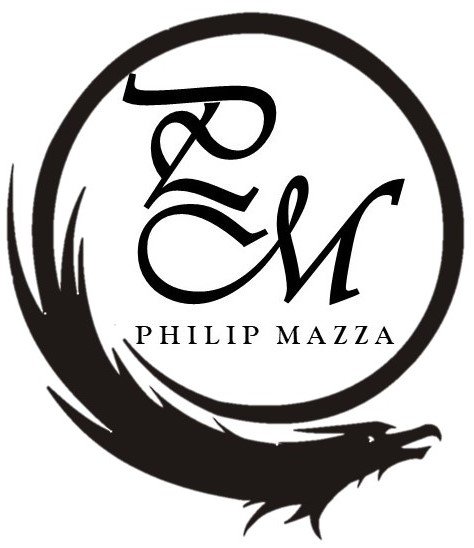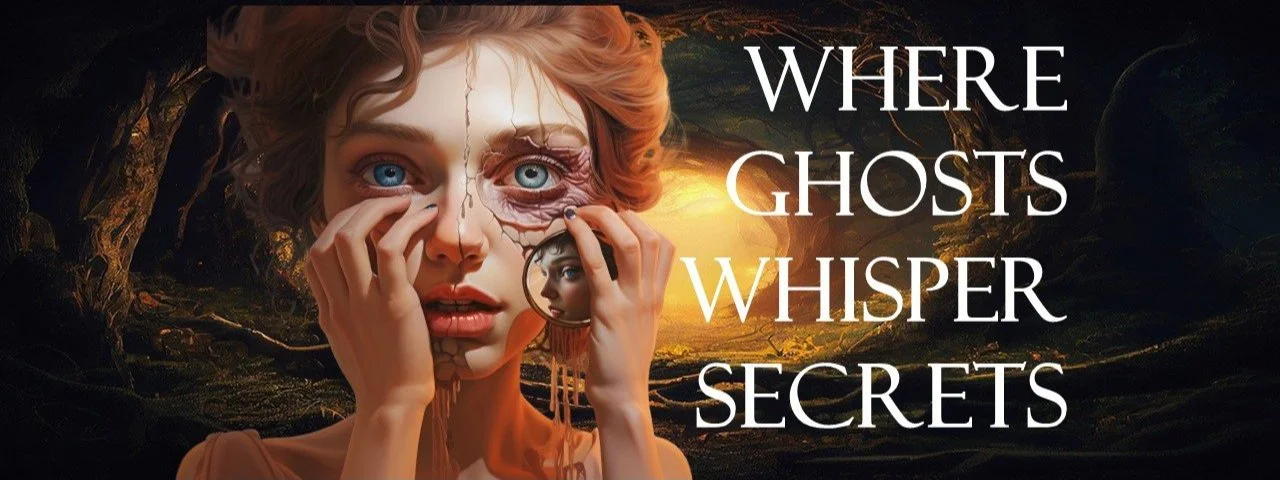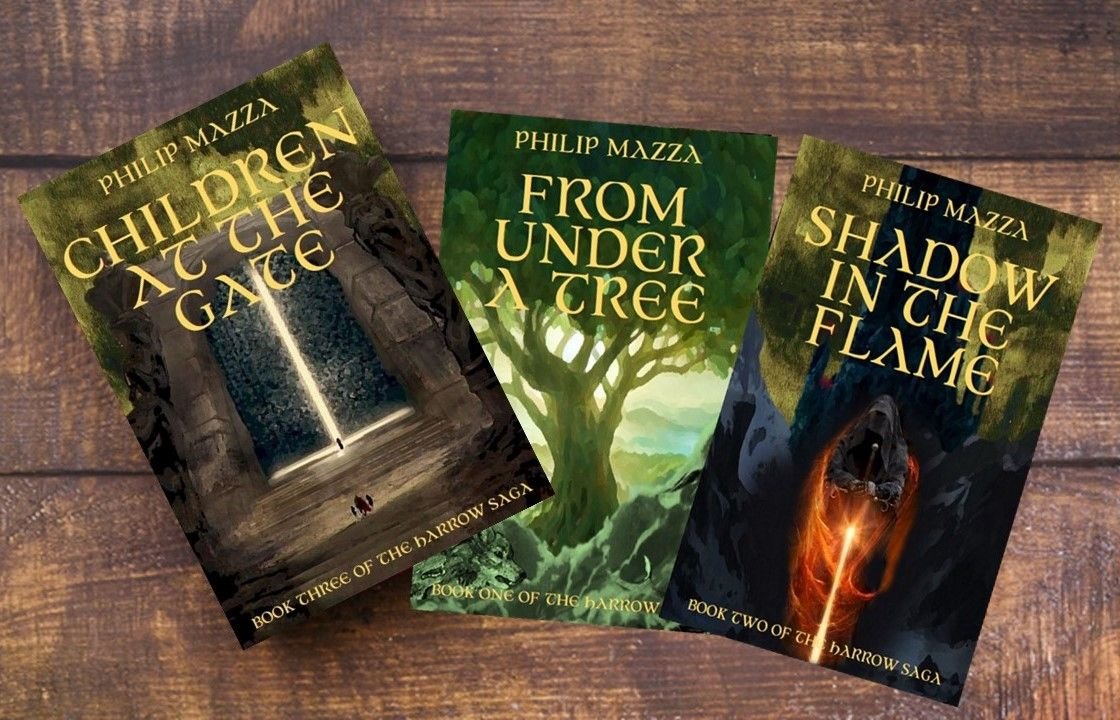Interview with Philip Mazza
/Today, we’re spending some time with Philip Mazza, author of The Harrow Saga. For those who may not be aware of the series, it is an epic fantasy trilogy, but very different from others you may have read. It has a very unique theme and storyline, and it is also a bit darker than many other fantasy tales. Most fantasy novels get a bit too predictable, and avid fantasy readers are always on the lookout for something new, something different. This is exactly what The Harrow Saga offers. It's not your typical fantasy story. Phil, thank you for taking the time today to answer some of your readers' questions.
Q: The first question that comes up most often is why don’t you do book signings?
A: (Laughs) Well, the answer is simple. Of course, we had a pandemic, and that limited my availability. But more importantly, I’m a very private person and don't like being in the spotlight. I know that book signings are important for writers because they help to promote their books and to get their names out there. I prefer being at home with a good book or at Key West watching the sunset. But moving forward, I may do a few.
Q: I have to be careful with spoilers, of course, but you once said that you actually cried when writing a character’s death scene. Why is that?
A: I get emotional because over the years I become attached to many of the characters I create. Also, my characters are generally very human. They’re flawed humans, but they still have the capacity to love and care for each other. When I write a character’s death scene, it’s so emotional because I know that I will never be able to see that character again. It’s sort of like real life.
Q: You've been asked many times which of the characters you like best. So, I may as well ask the same question - which is your favorite character?
A: There are so many to choose from. Believe it or not, the two protagonists, Molly and Elizabeth, are not among my top favorite characters. This doesn’t mean that I dislike them or that they’re not complex characters. I tend to favor those characters that are challenged in extreme ways, ways unknown to most of us. For example, take Ridley Harwell or Ruin Thatch - their challenges are so extreme to us that it’s difficult to imagine what they’re going through. Another example would be Morna Anya. But perhaps my favorite characters are the felines, especially the Tar Malals - Shaer Thol, and Delotha ‘Sil.
Q: Why is that?
A: They’re shunned by their own kind, but worse yet, their own kind refuses to attempt to understand their uniqueness. At least with the Hulnur Istare, the warrior wizards - Thatch, Harwell, and Anya - they’re understood by the other wizards, even if they’re used by them in horrible ways and treated as tools. It's difficult to understand what one refuses to consider. We all have our own ways of looking at the world, our own perspectives and opinions. And when we're faced with something that we don't understand, it's easy to just refuse to consider it, to accept its existence. This is where humanity suffers.
Q: Is there an overriding theme in the series?
A: There are several. For me, the most important one is this: history does not repeat itself, but it often rhymes. As a species, our continued refusal to recognize this, that we do not learn from the past, will doom our existence. I know it sounds scary, and it is. There are just too many that refuse to be students of history, instead finding refuge in ignorance.
Q: I know no epic fantasy author likes it when Tolkien is mentioned. You’re no different. On your website, there’s even a blog that goes to great lengths about this. Why is this important to you?
A: It’s simple really - Tolkien is the stuff of legends, the kind of writer that people will tell stories about for years to come. There are some writers that are simply beyond all the rest, and he’s in that category. At the end of the day, a writer does not sit down at their computer looking to become Tolkien. No. A writer sits down at their computer to tell a tale.
Q: Many readers note a change in your writing style from one book to the next. There is a stylistic progression. Can you describe this and why it occurred?
A: Sure. It wasn’t by accident; it was purposeful on my part. You’ll see a difference in how Molly speaks and the language she uses. This change in Molly reflects her coming of age. She’s no longer a child who’s afraid to speak up. She's a young adult who is confident in her voice. And she's not afraid to use it. You’ll see the reverse occur later in the last book, as she nears her home. And, at the end of it all, you actually hear directly from Brows himself, Tollen Popperdock, the great historian of the Greysage, as he explains how he went about writing the history in the manner he did. The language is stylistically very different from what is used in the books. It was a lot of fun for me, and I think it will be a lot of fun for the reader as well.
Q: You have always said that there will be no more Harrow books. Why is this?
A: This story was such a large part of my life, beginning back in 2004 - I’ve lived with it for eighteen years, and during that time, so much of my life has changed. Even though I’ve loved every moment of writing it, I just feel it is time for me to move on to other projects.
Q: Were those eighteen years difficult?
A: My grandfather used to tell me, “Don’t grow old.” He was right, of course. To answer your question - yes - they were difficult in many ways, and you’ll see this in my author introductions.
Q: Part of the books I’ve enjoyed are the prologues. Why did you write them, and why are they important to the story?
A: The three prologues are like pieces of a puzzle. Separately, each one represents a different story, and they foreshadow what is to happen next in the story. But, when you put them together, you can see how they fit together to form a larger picture, a cohesive whole, and how they set the tone for the larger story.
Q: Are Molly and Elizabeth modeled after anyone in your life?
A: Yes. There are actually three characters that reflect people in my life. Molly and Elizabeth was modeled after two of my nieces. Erol Carrick as he exists in Harrow was inspired by my father.
Q: Many of your readers have talked about the realistic battle scenes in the third book. How important was it to make those scenes so realistic?
A: As I previously mentioned, the stylistic changes between the three books was purposeful. The growth of the story, and how the story matures, is a reflection of Molly’s growth. Part of this, of course, is the ultimate battle between the forces of the good and righteous and the evil darkness. Such a battle, such a fight, had to be portrayed realistically and this includes three major aspects. The first is clarity. The reality is that battles are fast, frantic, and unpredictable, involving thousands of combatants, all trying to kill one another by tooth or nail. The author has to provide clarity, that is, focusing the reader on certain chunks of the battle, chunks that are relevant to moving the story along. The second relates to the blow-by-blow combat of the fighters. As a writer, you have to get into some of this detail, of course, but the author cannot dwell on it. The author has to intersperse all this with other exposition, dialogue, or internal thoughts. The third is showing instead of telling, which is a preference of storytelling in which the action is shown to the reader rather than simply told to them. I think I was successful in these areas.
Q: Many readers have noted that you teach business courses at a college. Has that influenced your writing?
A: Not really. I love being in the classroom and helping my students grow and learn. It's an absolute joy for me to see them progress and be able to learn new things. I love being that conduit for them, and it's something that I'm very passionate about. I truly believe that teaching is one of the most important jobs in the world, and I'm so grateful to be able to do it.




